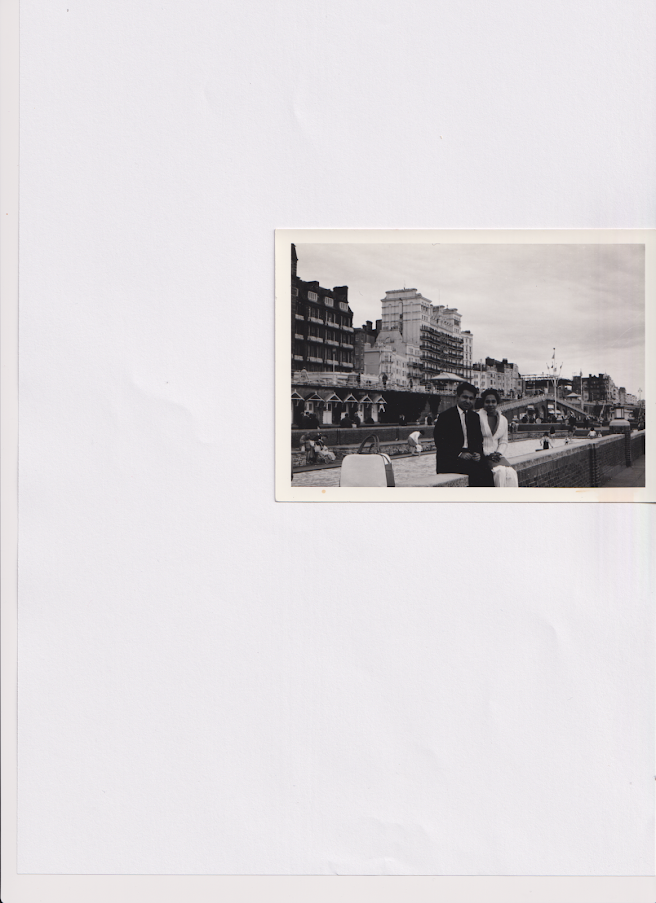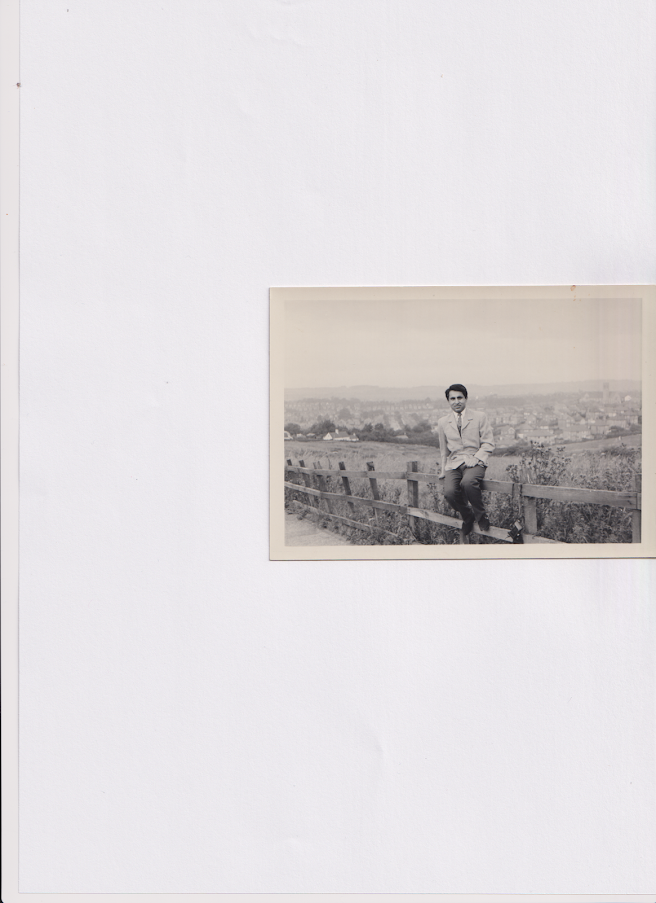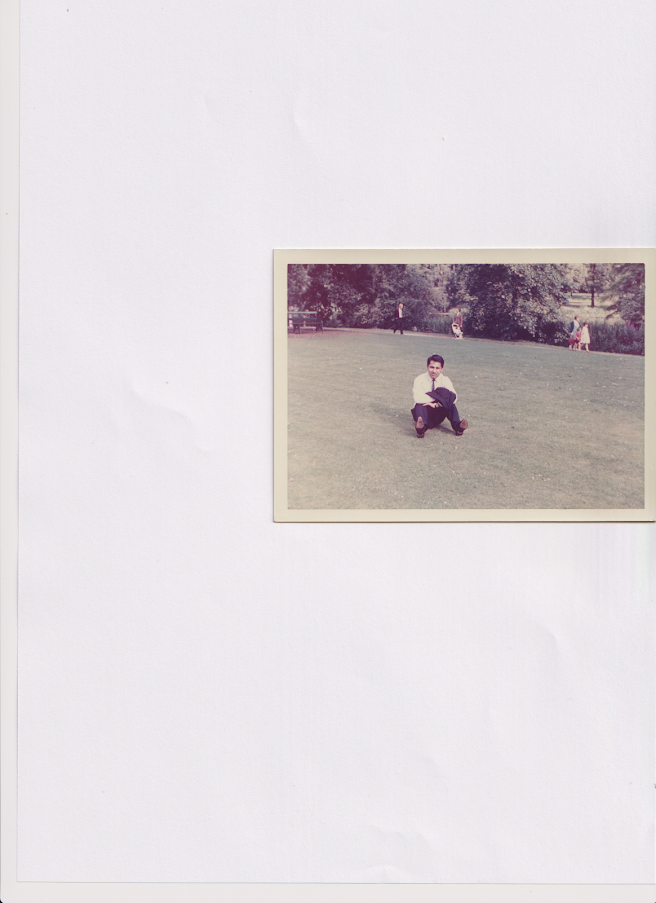Memories of 1947 between Rawalpindi and Delhi. Partition told through the eyes of VN Luthra
On May the 20th 2022, I interviewed Mr. V N Luthra, who shared his experiences of Partition in India. Mr. Luthra was born in 1935, where he lived in Bhabra Bazaar, Rawalpindi until he was twelve years old. He then made the traumatic and emotional crossing over the border from what is now present-day Pakistan to Delhi, India.
“My father was most reluctant to leave Rawalpindi. Father always believed that one day, we would return. We were all living in peace where only a handful of people wanted to cause trouble.
Twice they tried to burn the house down and my father had managed to stop them, but he felt that he may not be able to stop them again. We lived in a sort of gated area, with other Hindu families, where they shut the iron door, to protect us. My parents had to make the difficult decision whether we all stay here, or we go together. We were the last two families in Rawalpindi, eventually we left. My father worked in Purana Qila and owned a big business there. It was a big textile store with three different departments, summer, winter and silk.
A Muslim friend advised my father and he then decided that I should let my wife and children go to India and leave and when things are really settled, we will all come back.
Mahatma Gandhi came to Rawalpindi to speak to people, and many went to listen to him. My mother went to listen to what he was saying. And she came back and said, Gandhi Ji says there is no worry at all, we are all brothers and sisters, and we can all live together, that we don’t have to leave. The flight that was scheduled for us was cancelled, so we had to all come back and could not go by air. My mother said, whatever happens we all stay together. We stay together or we all die together.
When he decided that we had to leave, there were no trains, no buses, and no air. We had to take an open truck to the railway station. The trains would be leaving for India. My mother got very panicky. As the open truck driver appeared to be changing the direction of the tracks, taking a dangerous course.
I don’t know where the train station was as my father’s friend arranged this for us. The news was coming that so many people are being killed in India and so many people being were being killed in Pakistan.
We sat in the goods in part of the train. We didn’t know where the other relatives were. My mother was worried that radical groups would try and hurt us. She had asked us to keep sona, a gold chain and said if anyone wants to hurt you, then offer them this.
When the train left Rawalpindi there was a lot of chaos. The train stopped just before Lahore. It was a really hot day, and nobody knew whether everyone in the train will be killed or whether the train would be allowed to go onto the other side.
I had not seen it, but I heard that there were children who were on the verge of dying. That people gave them their urine. The rumour was that the tank of water had poison. If you can’t kill them, then let them drink the water. So, no one would drink it. It was a rumour but I do not know as such.
As a child you are fearless, the train was stuck there. I was walking around and then saw on the other side there was another train from the Northwest Frontier Province. Everyone was killed on the train. The only thing I saw and remember distinctly was the day when people were killing each other.
Before father reached home, I would stand by the window. My mother would ask me have you seen papa? And I replied no, not yet. She looked very nervous. I saw someone coming towards my father, some Muslim guy was running up to him with a talwar (sword). Papa was then nearing, he was coming towards me, mother was shouting run. My mother left me standing there on the third floor, she rushed to the ground floor. She just opened the door, he entered and he was saved.
When things were not right and arguments were taking place with, shall we go and not go. I remember my father picking me up, I was standing on the third floor. What are you doing my mother asked? My father picked me up and he was going to throw me on the floor. I remember he picked me up. I’ll kill him he thought. My mother stopped this and my father said, I cannot see my children being killed in front of my eyes. I cannot see others kill him, I would rather kill him with my own hands. And that is how our journey in Pakistan ended.
The rumour was that the Indian forces sent trucks, open trucks to take the refuges to the Wagah border. We then went in the open trucks and reached the border. And I remember clearly the huge uproar when we arrived, shouts of India zindabad!
Papa had given money to people, so that they could help us. The trucks were parked very far, you couldn’t walk so far. You couldn’t carry things. Unfortunately, during the migration, all our birth records were lost in the Partition. When admitted to a school in Delhi, I didn’t know the exact month I was born. My mother said I was born in October, the school put down April. So, it’s October but was officially made April.
We lived in a refugee camp for about a month in Amritsar. My Taya (father’s brother) was in Lahore, they were building a house there. Taya Ji always lived in Lahore, my father was very much worried about him. My Taya Ji said I will build the house and you come back when things settle.
My father then came to know that two of his cousins had left Pakistan and had reached Ludhiana, in Punjab. He always imagined he would go back and he had even given the keys to another Muslim family. I will come back he said. We never got the keys back. One came to kill and another came to save. Mother brought back all her jewellery. She brought 2.5 kilo in weight to start the business. He had three brothers, one had left Delhi to work in the steel mines.
Papa started various businesses in Delhi but they did not take off. He had a wholesale food shop and then factory work. He opened up a shop. Karachi was such a prosperous city and even after partition, it was flourishing and prosperous. Intellectuals and well-spoken people lived in Karachi. It was very prosperous. Lahore was viewed as a centre for culture and education. Karachi was the business centre.
I always had a strong desire to see my family home and Papa’s business. In 1966 father passed away. I always wanted to go back, I never went back but have tried to look at our home on google maps.
My father always said, you can divide the country but not the people”.



